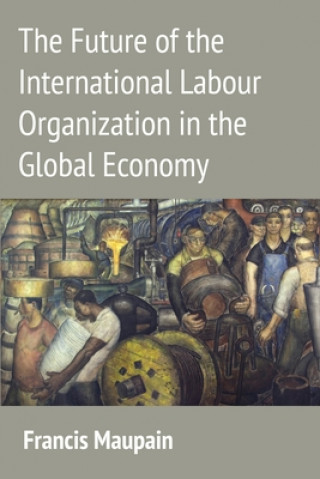
Kód: 01358948
Future of the International Labour Organization in the Global Economy
Autor Francis Maupain
The International Labour Organization was created in 1919, as part of the Treaty of Versailles that ended the First World War, to reflect the belief that universal and lasting peace can be accomplished only if it is based on socia ... celý popis
- Jazyk:
 Angličtina
Angličtina - Vazba: Pevná
- Počet stran: 320
Nakladatelství: Bloomsbury Publishing, 2013
- Více informací o knize

Mohlo by se vám také líbit
-

Eternity
1457 Kč -

Microoptics
4104 Kč -

Cell 8
312 Kč -
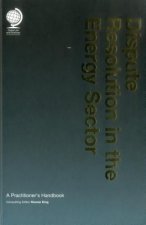
Dispute Resolution in the Energy Sector
5057 Kč -

Lucid Awakenings
793 Kč -

Crossing the Line
441 Kč -

MESSAGE OF THE PRESIDENT OF THE UNITED S
417 Kč
Darujte tuto knihu ještě dnes
- Objednejte knihu a zvolte Zaslat jako dárek.
- Obratem obdržíte darovací poukaz na knihu, který můžete ihned předat obdarovanému.
- Knihu zašleme na adresu obdarovaného, o nic se nestaráte.
Více informací o knize Future of the International Labour Organization in the Global Economy
Nákupem získáte 387 bodů
 Anotace knihy
Anotace knihy
The International Labour Organization was created in 1919, as part of the Treaty of Versailles that ended the First World War, to reflect the belief that universal and lasting peace can be accomplished only if it is based on social justice. As the oldest organisation in the UN system, approaching its 100th anniversary in 2019, the ILO faces unprecedented strains and challenges. Since before the financial crisis, the global economy has tested the limits of a regulatory regime which was conceived in 1919. The organisation's founders only entrusted it with balancing social progress with the constraints of an interconnected open economy, but gambled almost entirely on tools of persuasion to ensure that this would happen. Whether that gamble is still capable of paying-off is the subject of this book, by a former ILO insider with an unrivalled knowledge of its work. The book forms part of a broader inquiry into the relevance of founding institutional principles to today's context, and strives to show that the bet made on persuasion may yet pay off. In part, the text argues that there may be little alternative anyway, showing that the pathways to more binding solutions are fraught with difficulty. It also shows the ILO's considerable future potential for promoting effective, universal regulations by extending its tools of persuasion in as yet insufficiently explored directions. Starting with an examination of how the organisation's institutional context differs from 93 years ago, the author goes on to evaluate the prospects of numerous proposals put forward today, including the trade/labour linkage, but going beyond this. As a case study in how strategic choices can be made under legal, social and institutional constraints, the book should be valuable not only to those with an interest in the ILO, but to anyone who studies international organisation, labour law, law and society or political economy.
 Parametry knihy
Parametry knihy
Zařazení knihy Knihy v angličtině Society & social sciences Politics & government International relations
3870 Kč
- Plný název: Future of the International Labour Organization in the Global Economy
- Autor: Francis Maupain
- Jazyk:
 Angličtina
Angličtina - Vazba: Pevná
- Počet stran: 320
- EAN: 9781849465021
- ISBN: 1849465029
- ID: 01358948
- Nakladatelství: Bloomsbury Publishing
- Hmotnost: 656 g
- Rozměry: 163 × 241 × 24 mm
- Datum vydání: 23. October 2013
Oblíbené z jiného soudku
-

On Palestine
276 Kč -

Prisoners of Geography
276 Kč -

World Order
302 Kč -

International Relations, Global Edition
2700 Kč -

Grand Chessboard
561 Kč -
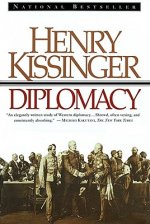
Diplomacy
487 Kč -

Clash of Civilizations and the Remaking of World Order
454 Kč -
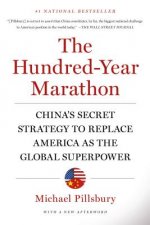
Hundred-Year Marathon
419 Kč -

The Spy and the Traitor
323 Kč -

Understanding the Intelligence Cycle
1811 Kč -

Who Rules the World?
302 Kč -
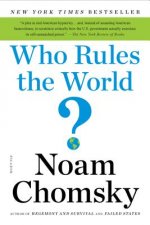
Who Rules the World?
302 Kč -

Dead Aid
429 Kč -

World Order
378 Kč -

Adults In The Room
378 Kč -

Legacy of Ashes
476 Kč -
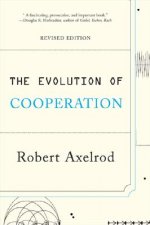
Evolution of Cooperation
471 Kč -

Strategic Vision
410 Kč -

Secret World
542 Kč -

Geopolitics and Geoculture
543 Kč -

Dawn of Eurasia
302 Kč -

How Spies Think
323 Kč -

Gaza in Crisis
302 Kč -

Planetary Cycles Mundane Astrology
479 Kč -

OVERTHROW : AMERICA'S CENTURY OF REGIME
624 Kč -

Is the EU Doomed?
610 Kč -

Directorate S
431 Kč -

Righteous Victims
593 Kč -

Europe's Border Crisis
1121 Kč -

America's Strategy in World Politics
1763 Kč -

Destroying Libya and World Order
481 Kč -

amantes del fin del mundo
568 Kč -

My Nationalist Pony
854 Kč -

Critical Practices in International Theory
5256 Kč -

American Century and Beyond
592 Kč -
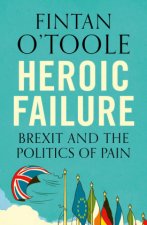
Heroic Failure
302 Kč -

Oxford Handbook of the European Union
1428 Kč -

Rise and Kill First
487 Kč -

PEACE TO END ALL PEACE
608 Kč -

Tragedy of Great Power Politics
470 Kč -

Countdown to Zero Day
401 Kč -

Revenge of Geography
520 Kč -

Political Order and Political Decay
410 Kč -

Naked Diplomat
356 Kč -

Against Our Better Judgment
317 Kč -

After the Empire
396 Kč -

Legacy of Ashes
517 Kč -

Dragons and the Snakes
794 Kč -

Oxford IB Diploma Programme: Global Politics Course Book
1485 Kč
Osobní odběr Praha, Brno a 12903 dalších
Copyright ©2008-24 nejlevnejsi-knihy.cz Všechna práva vyhrazenaSoukromíCookies



 Vrácení do měsíce
Vrácení do měsíce 571 999 099 (8-15.30h)
571 999 099 (8-15.30h)